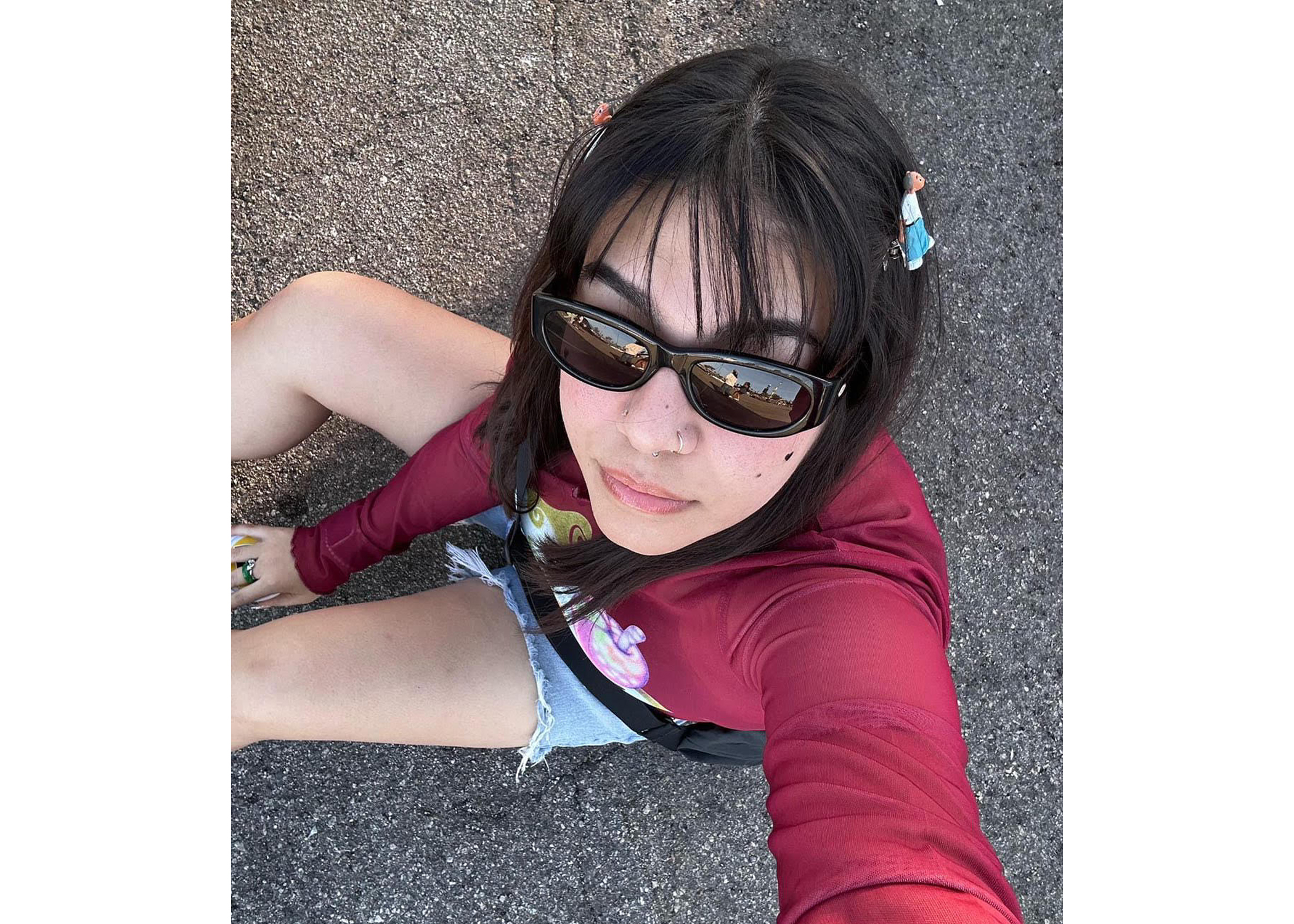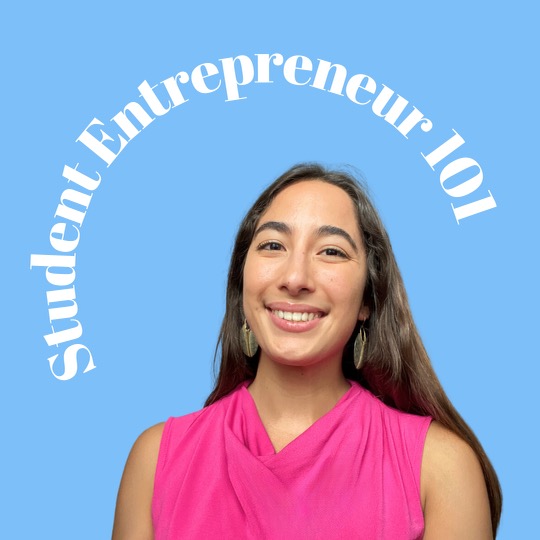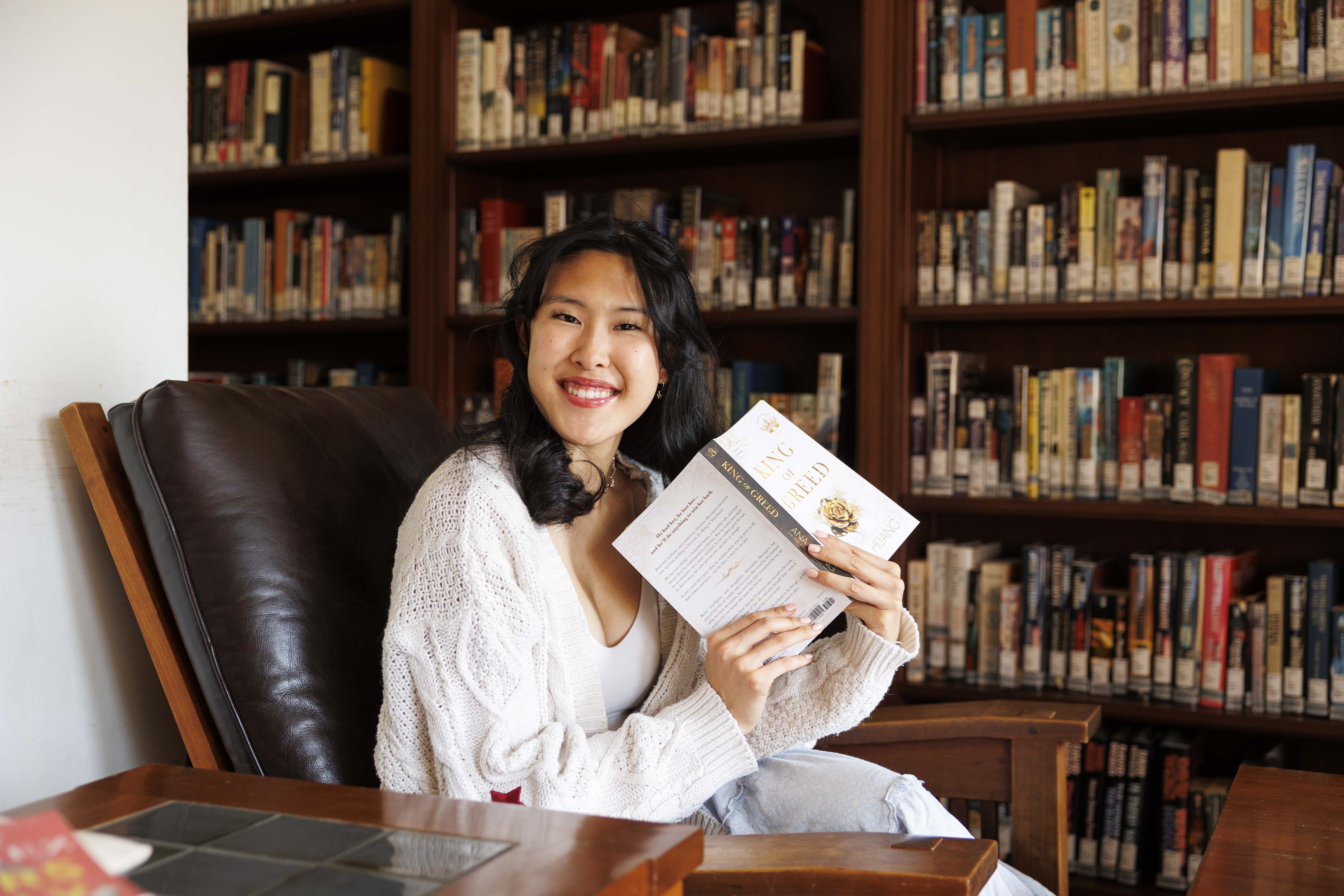Eleonor Palabrica offers vulnerable insights on podcast ‘Unreliable Narrator’

Sporting a red top and a pair of sunglasses. Eleonor Palabrica takes a photo of herself. The alumnus currently hosts the podcast “Unreliable Narrator.” (Courtesy of Eleonor Palabrica)
By Julian Dohi
Nov. 24, 2023 1:23 p.m.
This post was updated Jan. 9 at 7:37 p.m.
Despite hosting a podcast called “Unreliable Narrator,” Eleonor Palabrica keeps it consistently real.
The alumnus said she started her podcast during her time at UCLA Radio. Since the podcast’s beginning at the height of the COVID-19 pandemic, the stories she shares blend comedy and authenticity, and they encourage her listeners to take up space and let their voices be heard, Palabrica said.
“The podcast is really just a look into a 20-something-year-old’s head,” Palabrica said. “It’s like you’re talking to your friend.”
[Related: UCLA student Rose Aguilar empowers entrepreneurship with podcast series]
When Palabrica transferred to UCLA in 2020, UCLA Radio was her main source of interaction with other students, she said. “Unreliable Narrator” started out of her excitement to tell stories and share music with her friends, she said, but also as a way to preserve her essence in her digital footprint so she wouldn’t be forgotten.
In every episode, she talks about her thoughts, experiences and feelings for around an hour. Topics can range from her childhood YouTube channel to her experience in group therapy. Palabrica said she recommends the Coachella episode as a good introduction to her sense of humor and storytelling style. She said she overheard the term “unreliable narrator” in a conversation between her sister and father about a movie, and it stuck. Despite the name, she said she tries to stay true to her version of events and not exaggerate things.
Palabrica said she grew up trying to minimize herself while others would take up so much space, but now she’s working to speak up and encourage others to do the same through her podcast. Palabrica’s commitment to documenting her thoughts and experiences inspired fellow alumnus Damian Rodriguez, who said he discovered Palabrica through social media. He is now planning to revive his own podcast from his time at UCLA Radio, where he discussed a different Spanish-language music genre every week, he said.
“I think the best thing that the podcast has shown me … is to go after creative endeavors you’re interested in,” Rodriguez said. “Having a podcast and her embracing it so unabashedly is super cool to me because podcasts are very much seen as a stereotypically bro-y thing. You think of people like Joe Rogan and things like that. So it’s cool that in the face of these negative stereotypes … she’s willing to just kind of say, ‘Screw it.’”
Palabrica said her most common feedback about the podcast was that it felt like getting coffee with her or hanging out together after a night out. To get this conversational tone, she said she used to record each episode sitting in front of a mirror, imagining she was talking to a friend. She said the podcast gives her a sense of safety that allows her to cry and share embarrassing stories that she otherwise wouldn’t in real life. But despite emotional conversations about her mental health and her relationship with her family, Palabrica said she doesn’t worry about a parasocial relationship with her listeners.
“I make the door really open for people to talk to me,” Palabrica said. “I want people to have that outlet because I’m always open – as long as you’re not a weirdo.”
Such vulnerability is important to her, especially in today’s influencer-saturated culture, Palabrica said. In many episodes, she opens up about her relationship with her parents, which she said has been a struggle behind the scenes as they have felt vilified by the show. However, there are some episodes in the archives in which she said she opens her heart up to them and thanks them for everything they’ve done for her that they haven’t listened to yet. Alumnus Audrey Berry said they appreciated that Palabrica opened up so much about her relationship with her parents. Palabrica and Berry are both part Mexican, which Berry said helped her relate a lot to Palabrica’s relationship with her mom. Palabrica said it’s also important these personal experiences are being told on her terms.
“Growing up, I didn’t have people that looked like me or came from the same things as me talking about what we go through in a more serious aspect without monetary gain,” Palabrica said. “I know I sound ugly when I say it, but I get tired of it, and I’m tired of people just trying to be something they’re not. You don’t need to be that influencer. You’re not influencing anybody.”
[Related: UCLA alumnus strives to help others feel seen, represented through social media]
Transitioning toward a looser upload schedule and spending more time telling authentic stories are just a few of the many changes Palabrica said the podcast has undergone over the years. Because of copyright issues with Spotify, she said many of her older episodes had to be archived on a Google Drive. Still, she’s feeling a second wind with the podcast and plans to continue it as long as it still brings her joy, she said.
“Just the fact that I know it’s going to make someone’s day or make them laugh is what makes me keep going back,” Palabrica said. “After I put out an episode and then people tell me what they liked about it or like what made them laugh, it makes my day.”





